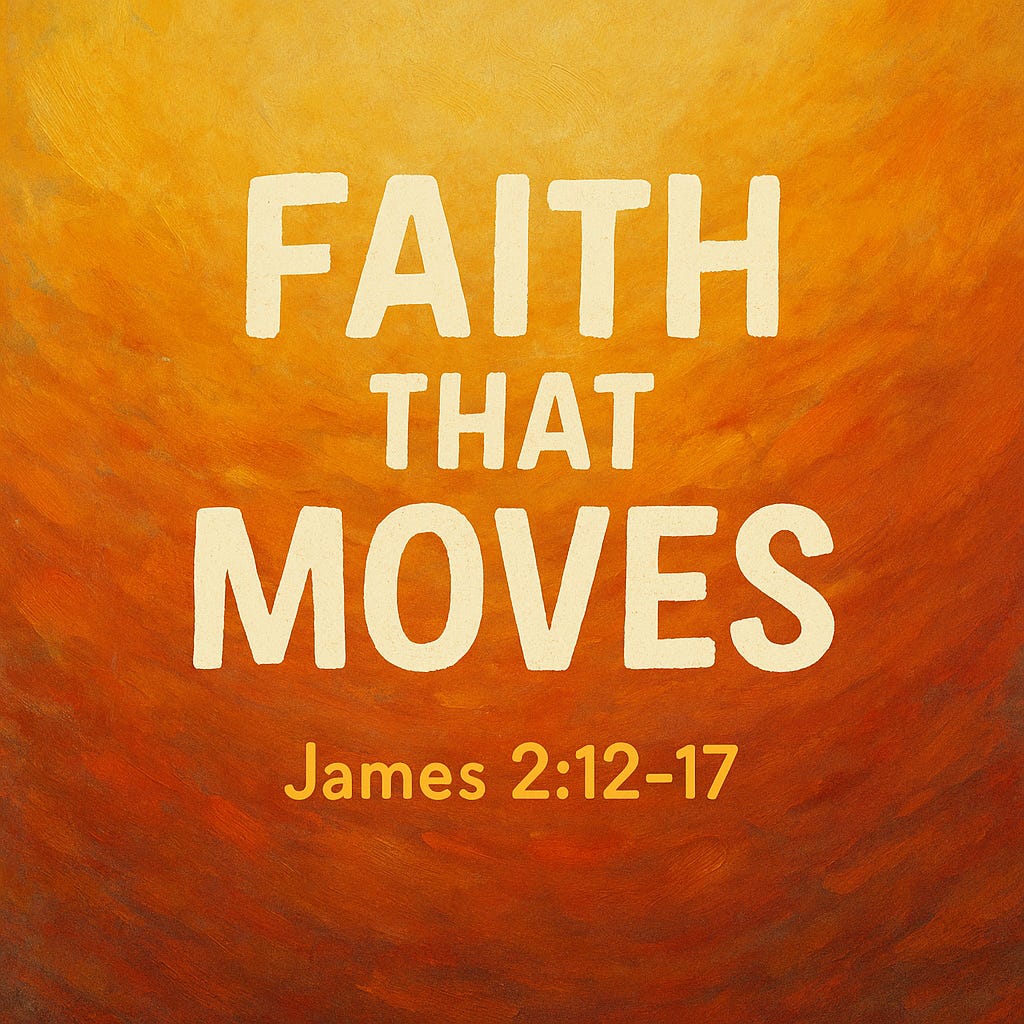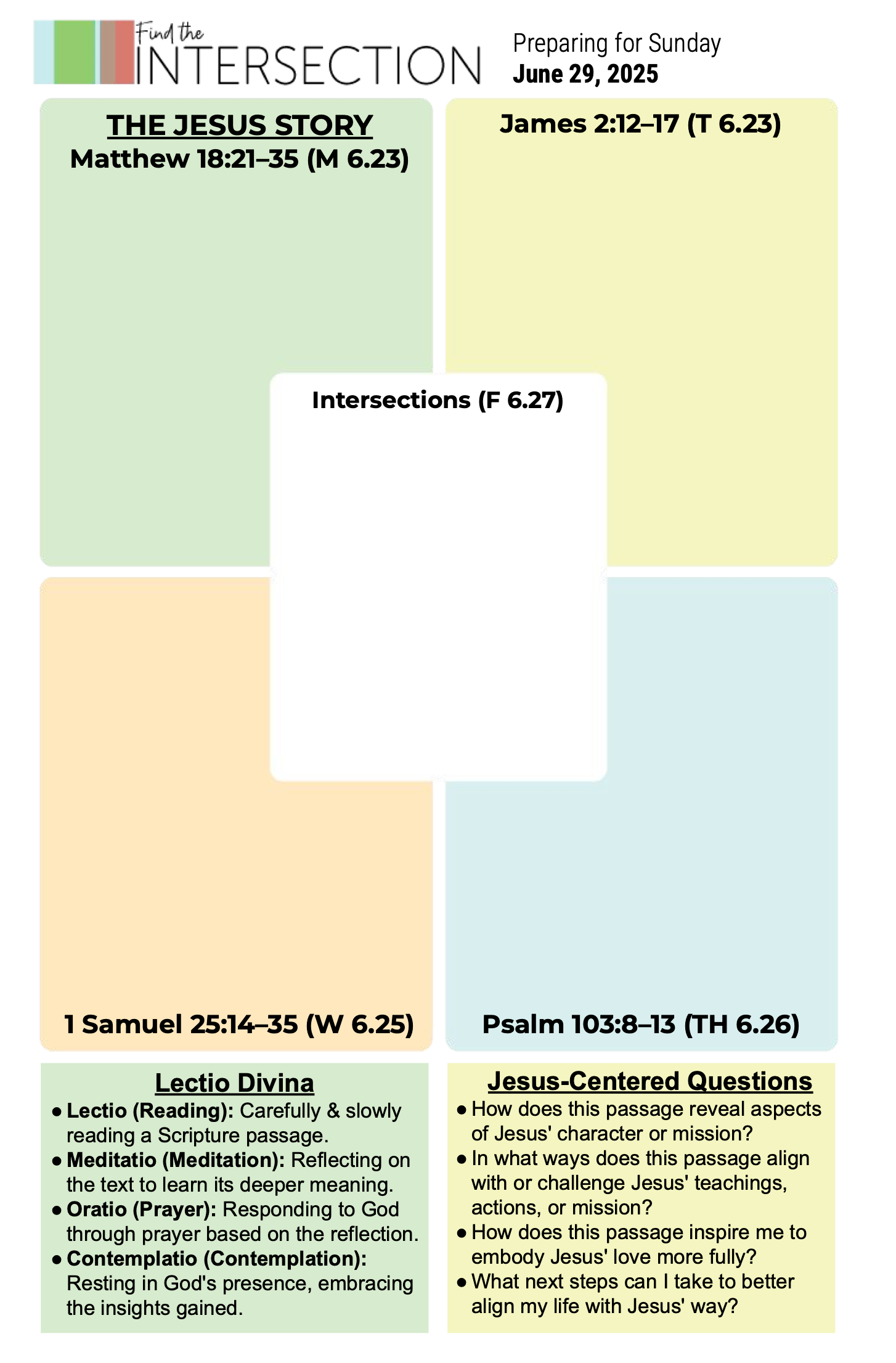Faith that Moves
James 2:12–17 | Tuesday, June 24, 2025
The Gospel According to the Servants – Week 3
Faith is Made in Real Love
There’s a kind of faith that talks a good game, and then there’s a faith that gets its hands dirty. James isn’t content with lip service. He wants to know if our faith puts food on someone’s table, clothes on someone’s back, mercy in someone’s wounds.
In a culture where belief can be reduced to a mental checkbox or spiritual branding, James calls us back to the scandalous simplicity of Jesus: faith is made real in love.
This is the gospel according to the servants, where faith shows up, not in theory, but in tenderness.
Context: Setting the Scene
Literary Context: James, the brother of Jesus, writes to scattered believers to remind them that true faith is not theoretical but embodied. James 2 is part of a larger exhortation about partiality, judgment, and the social implications of faith. Verses 12–17 specifically address how the law of mercy and the claim of faith must be seen in action.
Historical Context: Early Christian communities were struggling with favoritism toward the wealthy and neglect of the poor. James confronts this by calling for a return to the “royal law”, love your neighbor as yourself, and insists that genuine discipleship always bears fruit in compassionate acts.
Theological Context: James is not opposing Paul’s teaching on grace, but offering a counterbalance to cheap grace. His concern is a faith that claims salvation but fails to extend mercy. He’s echoing Jesus, especially the parable of the sheep and goats and the Sermon on the Mount, where love for neighbor is the metric of righteousness.
James 2:12–17 (NLT)
12 So whatever you say or whatever you do, remember that you will be judged by the law that sets you free.
13 There will be no mercy for those who have not shown mercy to others. But if you have been merciful, God will be merciful when he judges you.
14 What good is it, dear brothers and sisters, if you say you have faith but don’t show it by your actions? Can that kind of faith save anyone?
15 Suppose you see a brother or sister who has no food or clothing,
16 and you say, “Good-bye and have a good day; stay warm and eat well”—but then you don’t give that person any food or clothing. What good does that do?
17 So you see, faith by itself isn’t enough. Unless it produces good deeds, it is dead and useless.
Key Insights
The “law that sets you free” (v.12) is not a list of religious rules, but the liberating law of love. It frees us from judgmentalism and calls us into mercy.
Mercy is the measuring stick (v.13). Mercy is not optional for followers of Jesus, it is a defining characteristic. God’s mercy flows through us to others.
Faith that is only spoken is dead (v.17). James challenges performative religiosity. Faith isn’t an abstract belief but a life shaped by compassionate action.
Real faith sees and responds (vv.15–16). To ignore a tangible need and offer only words is not just unhelpful, it’s a contradiction of Christ.
This is not works-righteousness. It’s righteousness at work. James insists that faith has fruit. Not to earn God’s love, but because we’ve received it.
Guiding Question
What’s one way your faith could take flesh in action today, especially for someone who feels unseen?












We can never be reminded too often especially now